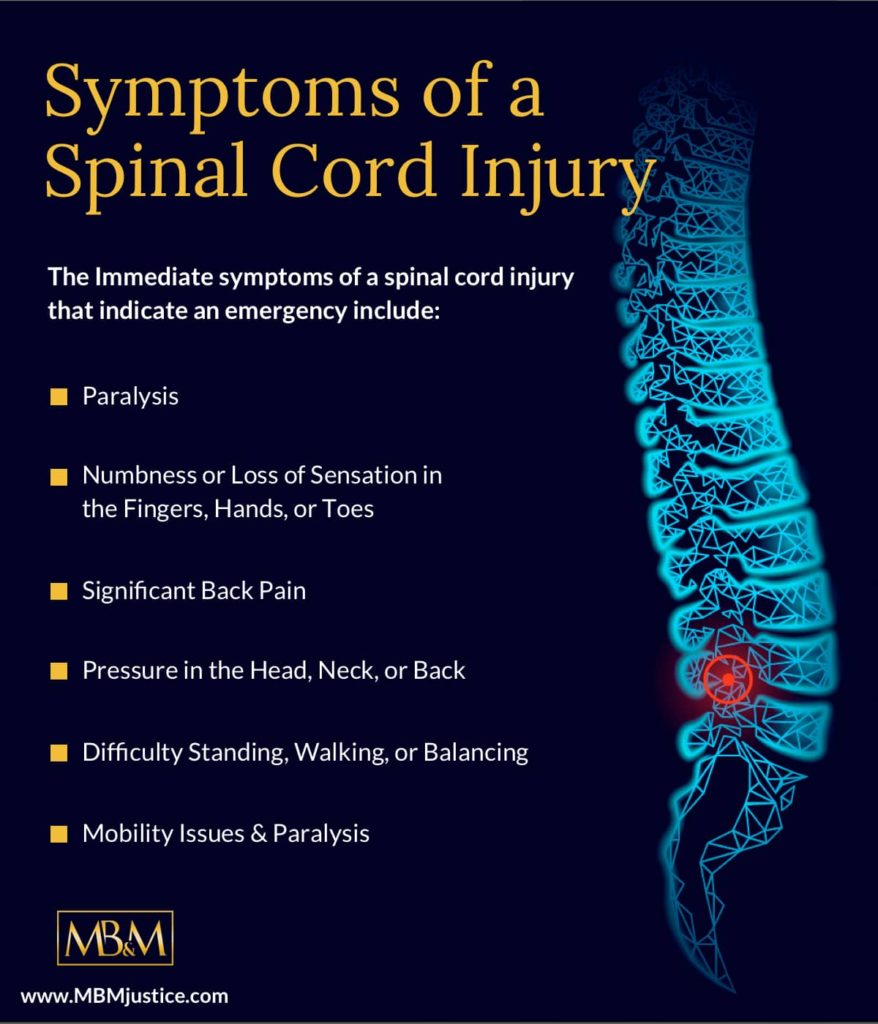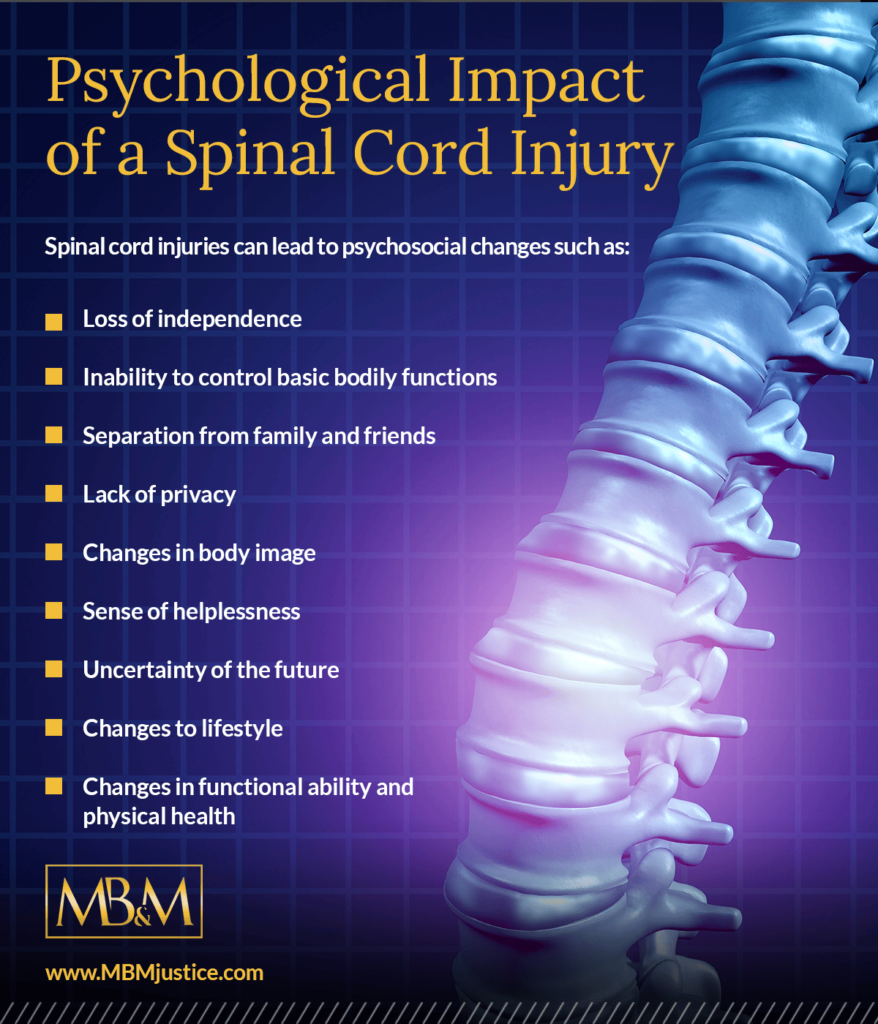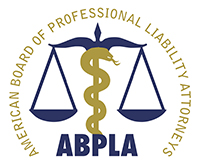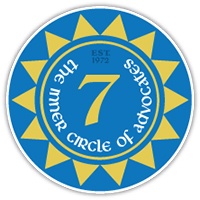Dedicated Rhode Island Spinal Cord Injury Attorneys
A spinal cord injury (SCI) is one of the most life-altering experiences a person may endure. When the spinal cord is harmed, the brain and body cannot adequately communicate signals involving movement, sensation, and involuntary bodily functions. Though some people are able to recover from their spinal cord injuries, others cannot. These individuals may suffer permanent disability or may even die as a result of their injuries.
For 45 years, the accomplished Rhode Island spinal cord injury attorneys at Mandell, Boisclair and Mandell, Ltd. in Providence have helped injury victims throughout the state. We have the knowledge, experience, and resources necessary to handle even the most complex cases. We are committed to helping you obtain the maximum compensation you deserve for the hardships you have experienced and will continue to endure as a result of your spinal cord injury.
What Happens if Your Spinal Cord Is Damaged?
The spinal cord is a bundle of nerves that travels from the bottom of the brain down the back. It runs through the spinal canal, surrounded by the vertebrae that make up your back bone. Nerves branch off from the spinal cord in 31 pairs, extending to the chest, arms, legs, and abdomen. Signals are sent from the brain through these nerves to create movement in the arms and legs. The nerves also control the function of organs such as the lungs, heart, bladder, and bowels. Other nerves send messages from your arms and legs back to the brain, communicating senses of touch, temperature, pain, and position.
Unlike other parts of the body, the spinal cord is not able to repair itself if it is damaged. Spinal cord injuries are usually the result of:
- Anesthesia injection into the back
- Trauma
- Compression
- Tears
- Infection which is not properly and timely diagnosed and treated
- Inflammation
- Tumor
- Loss of normal blood supply
Damage to the vertebrae or connective tissue, such as ligaments and disks, can also harm the spinal cord. These types of injuries can include:
- Partial misalignment of adjacent vertebrae (subluxation)
- Complete separation of adjacent vertebrae (dislocation)
- Fractures
Spinal cord injuries can affect the roots of the spinal nerves and the bones of the spine. In severe cases, these injuries can cause complete or partial paralysis.

What Can Cause a Spinal Cord Injury
There are countless ways in which a spinal cord injury can occur. According to the National Spinal Cord Injury Statistical Center, the most common causes of these injuries in the U.S. include:
- Motor vehicle accidents: Accounting for more than 38 percent of new spinal cord injuries every year, car, truck, and motorcycle accidents are the leading cause of SCI in the United States.
- Falls: Falling is responsible for more than 32 percent of the spinal cord injuries across all age groups in the U.S. For people over the age 65, falls are the leading cause of SCI.
- Acts of violence: Nearly 15 percent of spinal cord injuries are the results of violent acts, primarily gunshot wounds.
- Sports and recreational activities: Athletic and recreational activities such as football, hockey, and other contact sports, play a role in almost 8 percent of spinal cord injuries in the United States.
- Medical and surgical causes: More than 4 percent of SCIs in the U.S. are the result of surgical or other medical causes.
Types of Spinal Cord Injuries
The severity of spinal cord injuries is linked to the location and extent of the damage. In cases where the spinal cord is harmed but not severed, rehabilitation may be able to restore certain functions. If the spine is completely damaged, however, or if the cord is severed, the consequences of the injury may be permanent.
Spinal cord injuries are broadly categorized as either complete or incomplete. In complete spinal cord injuries, the spinal cord is severed, eliminating function below the site of the injury. Incomplete injuries, on the other hand, are characterized by the spinal cord being injured or compressed, but the brain’s ability to deliver signals below the injury site is somewhat intact.
The location of spinal damage plays a tremendous role in the severity of the injury, as indicated below.
Cervical Spinal Cord Injury
The cervical spine comprises the neck region, or top part of the spine. It controls the forward, backward, and side movements of the head and neck and the use of one’s arms and hands. Damage to this area of the spine typically results in severe complications, including:
- Quadriplegia/Tetraplegia
- Loss of function in the hands, arms, trunk, and legs
- Difficulty speaking and breathing
- Loss of bowel and bladder control
- Loss of sexual function
- Loss of control over breathing functions
Cervical spine injuries often require ongoing home care and constant monitoring.
Thoracic Spinal Cord Injury
The thoracic spine is located in the upper and middle areas of the back. Damage to this part of the spine can cause:
- Paraplegia
- Loss of bowel and bladder control
- Loss of sexual function
- Loss of control over breathing functions
Adaptive technology is often needed after this type of injury to assist with breathing and mobility.
Lumbar and Sacral Spinal Cord Injury
The lumbar and sacral is the lower part of the back. The sacral spine, sometimes referred to as the sacral vertebra or sacrum, is the large, triangular-shaped bone that rests between the hip bones, below the last lumbar vertebra. Damage to this part of the spine can lead to:
- Function loss in the legs and hips
- Loss of bladder and bowel control
- Loss of sexual function
Injuries to this region may necessitate leg braces, a wheelchair, or other adaptive technology.
Symptoms of a Spinal Cord Injury
Although the symptoms of a spinal cord injury are often immediately apparent, there can be delays between the initial injury and function loss. This is just one of the reasons why it is crucial to seek medical attention right away after any incident that affects the spine.
Immediate symptoms of a spinal cord injury that constitute an emergency include:
- Breathing difficulty
- Difficulty standing, walking, or balancing
- Pressure in the head, neck, or back
- Significant back pain
- Numbness or loss of sensation in the fingers, hands, or toes
- Paralysis
Potentially delayed symptoms of spinal cord injuries can include:
- Clear fluids expelled from the lungs
- Stinging sensations along the spinal cord
- Chronic back pain
- Exaggerated reflexes
- Muscle spasticity
- Bladder or bowel control issues
- Sexual dysfunction
- Loss of sensation, including feeling cold and heat
These symptoms may develop over an extended period of time. If they occur after an accident, it is important to seek medical care right away.
Are Spinal Cord Injuries Permanent?
When the nerves that send signals to and from the brain are severed, spinal cord injuries can be permanent. While advancements in medical technologies can help partially heal some damage, there are certain injuries that will disable some people for the rest of their lives.
There are two main factors that affect the longevity of a spinal cord injury:
- The location of the injury: When injuries occur on the upper part of the spine, the injury is usually severe. Damage to this area presents a high risk of losing feeling and movement in the arms and legs. It can become more challenging to speak. Breathing and other daily activities can become difficult and require assistance. While damage to the lower regions of the spine can cause a loss of movement and sensation below the waist, people with these injuries will likely still be able to breathe independently and use their hands and arms.
- The extent of the damage: Complete spinal cord injuries are more severe and potentially permanent than incomplete injuries. Generally speaking, the longer someone goes without seeing improvement in sensation or mobility, the lower the chance of improvement.
The Long-Term-Effects of a Spinal Cord Injury
The physical, financial, and psychological impacts of a spinal cord injury can last a lifetime. For this reason, it is critical to seek the representation of an experienced spinal cord injury attorney who can help you seek compensation for your losses.
Physical Impact of a Spinal Cord Injury
Spinal cord injuries may temporarily or permanently stop or alter the brain’s ability to communicate with the rest of the body. Long-term consequences of these injuries include:
- Quadriplegia/Tetraplegia: Also known as full-body paralysis, this involves the loss of the ability to feel or move from the neck down. These injuries typically require assistance for breathing, and bladder and bowel function, as well as lifetime assistive care for day-to-day activities.
- Low tetraplegia: Individuals with these injuries retain partial movement in the hands, elbows, or shoulders. While possibly being able to breathe unassisted, they may be unable to walk, and still require assistance with bowel and bladder care.
- Paraplegia: This type of injury is characterized by impairment below the waist, while upper extremity movement is usually unaffected.
Financial Impact of a Spinal Cord Injury
A spinal cord injury may result in financial devastation for a family. Those with quadriplegia, tetraplegia or paraplegia may face a substantial amount in additional expenses in the first year after the injury. These expenses include both living expenses and healthcare expenses.
Even those who do not receive a diagnosis of quadriplegia or tetraplegia—but suffer some form of limited mobility—may face enormous, additional expenses each year. You may be out of work temporarily or permanently.
Psychological Impact of a Spinal Cord Injury
Spinal cord injuries are associated with an array of emotional reactions, including despair, resentment, loneliness, isolation, depression, and withdrawal. The psychosocial changes that can accompany SCI include:
- Changes in body image
- Sense of helplessness
- Uncertainty of the future
- Changes to lifestyle
- Loss of independence
- Lack of privacy
- Separation from family and friends
- Inability to control basic bodily functions
- Changes in functional ability and physical health
Recovery From a Spinal Cord Injury
Recovering from a complete spinal cord injury may not be possible. You may undergo rehabilitation that helps you learn how to live with a permanent loss of function and how to use adaptive technologies. Even if a complete spinal cord injury prevents you from fully recovering, you will still rely on a team of medical experts to ensure you receive the most effective rehabilitation. This team may include:
- Pain specialists
- Psychologists
- Occupational therapists
- Physical therapists
- Physicians
The expenses associated with this high level of care can be staggering. It is crucial that you seek an experienced injury attorney to help you seek the compensation you need to make the best recovery possible.
What Compensation Is Available in a Providence Spinal Cord Injury Claim?
Spinal cord injuries are often incredibly serious, and the physical, financial, and psychological losses they cause require full and fair compensation. Damages in these cases can include current and future:
- Medical costs
- Lost wages
- Lost earning capacity
- Pain and suffering
- Physical and psychological therapy
- Adaptive technology
- Assistive care

Do I Need To Hire a Providence Spinal Cord Injury Lawyer?
If your spinal cord injury was caused by someone else’s negligence, you deserve compensation. In cases of serious injury that result in quadriplegia or paraplegia, your quality of life has suffered an immense impact. It is absolutely in your best interests to seek the counsel of an experienced Rhode Island spinal cord injury attorney to ensure you achieve the best possible outcome in your case.
Our seasoned spinal cord injury lawyers have extensive experience in handling these complex cases, providing you with distinct advantages in your personal injury lawsuit. We can help you by:
- Investigating the facts in your case
- Gathering evidence to support your claim
- Determining liability for your injury
- Calculating the value of your current and future damages
- Negotiating a settlement with the insurance company
- Taking your case to court if a fair settlement cannot be reached
The first step toward achieving the justice you deserve begins with a free case evaluation. Your spinal cord injury claim will be handled on a contingency basis, meaning you don’t owe any attorney fees unless a positive outcome is achieved in your case.
A complete spinal cord injury occurs when the cord is fully severed or so severely crushed that signals can’t get through. With complete spinal cord injury, all motor function and sensation below the level of trauma are gone. A complete spinal cord injury cannot be healed, which means full function cannot be restored. Treatment and recovery from this type of spinal cord injury are often focused on preventing secondary complications instead of restoring function.
An Incomplete spinal cord injury occurs when the cord is damaged, but some nerve pathways remain intact. With an incomplete spinal cord injury, you may still retain faint sensation, patchy movement, or both. Recovery from an incomplete spinal cord injury is possible, though never a guarantee. Even with advanced medical technology, improved emergency response, and proven therapies, you may not be able to regain full function after any type of spinal cord injury.
Spinal cord injuries do not always produce immediate symptoms. It’s a good idea to see a trusted physician after any accident to make sure nothing is being overlooked.
Signs that you may have sustained a spinal cord injury include:
- Extreme neck or back pain
- Sudden weakness or incoordination
- Numbness or “pins and needles” in limbs
- Loss of bowel or bladder control
- Trouble breathing
- Visible changes to the spine
If you notice any of these symptoms following an accident, you should contact a doctor right away. If an injury is present, swift intervention can make all the difference in recovery outcomes.
A study conducted by the National Spinal Cord Injury Statistical Center between 2010 and 2014 found that the lifetime cost of spinal cord injury ranges widely, depending on the type. The spinal cord injury attorneys at Mandell, Boisclair & Mandell will work with experienced experts to calculate the costs associated with ongoing care. Often, these costs can be many millions of dollars.
The financial implications associated with a spinal cord injury often do not include indirect losses, such as lost wages, fringe benefits, and household services, which can cost hundreds of thousands more. We will work to identify all economic losses, past and present, and fight for the legal compensation you deserve
Spinal cord injury is expensive. Specialized equipment, medications, and home modifications can quickly drain a bank account, and when inpatient care or in-home assistance are required, the costs can increase even more rapidly. Genworth’s 2023 survey shows Rhode Island home-health-aid rates are around $96,000 a year. A semi-private room in a care facility in Rhode Island averages around $162,500.
When you seek compensation for a spinal cord injury, it should be large enough to cover all of your lifetime expenses, as well as your pain, suffering, and other intangible losses. During your FREE case review with one of our Providence spinal cord injury attorneys, we can discuss various damages to help you understand what you may be entitled to seek.
Any adaptive technologies or home modifications made necessary by your injury are likely compensable. These include:
- Power wheelchairs, including parts and accessories such as pressure relief cushions, standing frames, and environmental control units.
- Accessible vehicles, such as vans with lifts/ramps, hand controls, and custom seating.
- Smart-home tech, including voice-activated lights and doors, and sip-and-puff computer interfaces.
- Home remodels, which may include entry ramps, widened doorways, roll-in-showers, lowered counters, and ceiling-track lifts.
Some accessibility devices can be borrowed through Rhode Island’s Assistive Technology Access Partnership. This allows you to try different devices for free until you find one that works for you. Advanced or tech-heavy accessibility devices can cost tens of thousands of dollars, making it important that you know what you’re looking for before you make a purchase.
Rhode Island’s Livable Home Modifications Grant will reimburse up to $4,500 (50% of eligible costs) for qualified accessibility upgrades, but severe spinal cord injury can demand tens of thousands more in renovations. These expenses are recoverable through legal action.
At Mandell, Boisclair & Mandell, we have decades of experience with spinal cord injuries. Our attorneys know the expenses that accompany these injuries and the challenges victims face in getting fair and full compensation. We are here to fight for every penny you will need to adapt to and move forward with your injury.
In Rhode Island, any person or entity whose negligence or misconduct contributed to a spinal cord injury can be held accountable. This can include:
- Negligent drivers, trucking companies, or rideshare operators
- Property owners, building managers, and landlords
- Employers and third-party contractors
- Manufacturers, shipping companies, and retailers
- Chiropractors, surgeons, and other healthcare providers
- City, state, or federal agencies
Depending on who is liable for your injury, there may be specific limitations on damages or differing statutes of limitations. It is always a good idea to consult with an attorney as soon as possible to make sure your rights are protected.
Our spinal cord injury lawyers thoroughly investigate these accidents to establish liability. By identifying all of the liable parties, we can hold each to account when pursuing damages.
Under R.I. Gen. Laws §9-20-4, you can seek compensation for spinal cord injury damages, even if you played a role in your accident. Your total award will, however, be reduced by the percentage of fault assigned to you.
As an example, if you are awarded $10,000,000 for a spinal cord injury, but are also found to be 20% liable for your accident, your recovery would be reduced to $8,000,000 after deducting your percentage of fault.
The question is, were you really at fault?
Without a thorough investigation into your accident, you could be shouldered with blame that isn’t yours to carry. Having an experienced spinal cord injury attorney investigate your accident helps to ensure that blame is properly assigned.
The truth is, most spinal cord injury claims settle outside of the courtroom during settlement negotiations. When a case is relatively straightforward, it can often be resolved within just a few months. More complex cases or those that require a trial, however, can take one or more years to resolve.
Not all attorneys are prepared for the courtroom. This makes selecting a team with proven trial experience important. An attorney with both negotiation and courtroom litigation experience will be able to provide more effective, thorough, and reliable representation.
The award-winning trial attorneys at our nationally recognized law firm prepare every case for the possibility of trial. This way, we can make sure that no matter what is required for your claim, we are prepared to represent your best interests.
Resources available to survivors of spinal cord injury in Rhode Island include:
- Rhode Island Spinal Cord Injury Information/Support Group. This group meets on the third Wednesday of every other month at the Southern New England Rehab Center Gymnasium.
- United Spinal Association. United Spinal Association offers free membership and delivers a statewide peer-mentoring program, equipment grants, and policy advocacy. Their national help desk can assist with everything from VA benefits questions to accessible-travel tips.
- TechAccess/ATAP. TechAccess lends adaptive devices and provides training on their use.
When you choose our firm, you are getting more than legal representation: you’re getting a partner in your full recovery. Not only will we stand by your side, protecting your rights from start to finish, we’ll help you find the resources and support you need to continue living your best life long after we’re no longer needed.
We care about your long-term health and happiness and are dedicated to helping you secure the compensation you need to heal and move forward.
Contact A Providence Spinal Cord Injury Attorney Today
At Mandell, Boisclair and Mandell, Ltd., our distinguished Rhode Island spinal cord injury lawyers are experienced in a wide range of personal injury claims. Whether your spinal cord injury is likely to cause a few months of limited mobility or permanent disability, we can help.
We have a proven history of unsurpassed results, and we are committed to helping you obtain the justice and compensation you deserve for your injuries.
To schedule a FREE consultation with our experienced team, contact us today online or at (401) 273-8330.



























